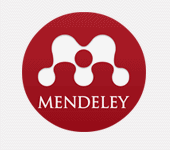Self Openness of PLWHA: A Literature Analysis on the Role of Social Media in Building Social Support
Abstract
Stigma and discrimination against people living with HIV/AIDS (PLWHA) remain a major obstacle to achieving an optimal quality of life, especially in terms of self-disclosure and access to social support. In the midst of the rapid development of digital technology, social media has emerged as a potential online space that can be utilized by PLWHA to express their identity and build social support networks. This study aims to analyze the role of social media in supporting the self-disclosure of PLWHA and its contribution in forming a supportive online community. The method used is a literature review with a descriptive analysis approach that examines various academic studies from the last 5 years published from 2019 to 2024 through databases such as PubMed, JMIR, Springer, PMC and Google Scholar. The results show that social media provides a safe space for PLWHA to manage their identity narratives, increase self-confidence, and obtain validation and emotional support from online communities. However, the dilemma between the need for openness and the risk of stigma and invasion of privacy remains a significant challenge. This study recommends that future research emphasize qualitative exploration of PLHIV's direct experiences, as well as the development of inclusive and safe digital platform policies and designs to support the sustainability of empowering self-disclosure.
Keywords
Full Text:
PDFReferences
Ayu, A.M., & Ulung, A.K. (2023). Efektivitas Program Kerja Sama Unaids-Indonesia Tentang HIV/AIDS Melalui Media Sosial Instagram @Tanya Marlo. Jurnal Netnografi Komunikasi, Vol. 1 No.2, Jan 2023. https://doi.org/10.59408/netnografi.v1i2.12
Creswell, J. W. (2014). Research Design: Qualitative, Quantitative, and Mixed Methods Approaches (4th ed.). Sage.
Dalimunthe, M. A. (2018). Implikasi Internet Sebagai Media Interaktif dalam Membangun Citra Aktor Politik. Al-MUNZIR, 10(2), 268-281.
Dulli, L., Ridgeway, K., Packer, C., Murray, K. R., Mumuni, T., Plourde, K. F., Chen, M., Olumide, A., Ojengbede, O., & McCarraher, D. R. (2020). A social media-based support group for youth living with HIV in Nigeria (SMART Connections): Randomized controlled trial. Journal of Medical Internet Research, 22(6), e18343. https://www.jmir.org/2020/6/e18343/
Erwansyah, Rio Ady., & Audilla, Amita (2021). Perspektif ODHA Terhadap Stigma Masyarakat dalam Mendapatkan Dukungan Sosial dan Peningkatan Kualitas Hidup di Masa Digital. Care Journal, Vol. 1, No. 1, Dec 2021, 64-80. https://doi.org/10.35584/carejournal.v1i1.7
Gerke, D. R., Step, M. M., Runger, D., Fletcher, J. B., Brooks, R. A., Davis, N., Kisler, K. A., & Reback, C. J. (2020). Associations between social support and social media use among young adult cisgender MSM and transgender women living with HIV. AIDS and Behavior, 24(8), 2287-2296. https://www.ncbi.nlm.nih.gov/pmc/articles/PMC7566877/
Han, X., Li, B., Qu, J., & Zhu, Q. (2018). Weibo friends with benefits for people live with HIV/AIDS? The implications of Weibo use for enacted social support, perceived social support and health outcomes. Social Science and Medicine, 211(June), 157 163. https://doi.org/10.1016/j.socscimed.2018.06.016
Harianto, F., Ohorella, N. R., & Dalimunthe, M. A. (2023). Kompetensi Komunikasi Guest Service Agent Dalam Mendorong Kepuasan Tamu Mh Hotel Ipoh Malaysia. KomunikA, 19(02), 30-35.
Ibrahim, K., Kahle, E. M., Christiani, Y., & Suryani. (2024). Utilization of social media for the prevention and control of HIV/AIDS: A scoping review. Journal of Multidisciplinary Healthcare, 17, 355-367. https://pubmed.ncbi.nlm.nih.gov/38799010/
Kementerian Kesehatan Republik Indonesia. (2022). Laporan Perkembangan HIV/AIDS & PIMS di Indonesia Tahun 2022. Jakarta: Kementerian Kesehatan RI.
Khan, R., Garman, E.C., & Sorsdahl, K. (2023). Perspectives on self-disclosure of HIV status among HIV-infected adolescents in Harare, Zimbabwe: A qualitative study. Journal of Child and Family Studies, 32(4), 879-891. https://link.springer.com/article/10.1007/s10826-023-02612-1
UNAIDS. (2023). *Global HIV & AIDS statistics - Fact sheet*. Retrieved from https://www.unaids.org/en/resources/fact-sheet
Naslund, J. A., Aschbrenner, K. A., Marsch, L. A., & Bartels, S. J. (2020). The future of mental health care: Peer-to-peer support and social media. *Epidemiology and Psychiatric Sciences*, 29, e7. https://doi.org/10.1017/S2045796019000580
Ohorella, N. R., Fauziah, D., & Dalimunthe, M. A. (2024). Brand Awareness Communication Strategy in Setujuan Coffee Marketing on Instagram Social Media. KomunikA, 20(02), 46-57.
Panogari, D., Luqman, Y., & Hasfi, N. (2023). Komunikasi Keterbukaan Diri Orang Dengan HIV/AIDS (ODHA) Melalui Platform Media Sosial Youtube. Interaksi Online, 11(4), 170-183. https://ejournal3.undip.ac.id/index.php/interaksi-online/article/view/41206
Philpot, S.P., Murphy, D., Prestage, G., & Wells, N. (2022). Using social media as a platform to publicly disclose HIV status among people living with HIV: Control, identity, informing public dialogue. Sociology of Health & Illness, 44(7), 1122-1138. https://pubmed.ncbi.nlm.nih.gov/35412691/
Ritonga, A.R., Dalimunthe, M.A., Veronica, A., Ginting, & L. D. C. U (2023). The Effectiveness of Social Media As A Promotional Medium Of The University Of Sumatera Utara (USU) Library. Talenta Conference Series: Local Wisdom, Social, and Arts (LWSA) 6 (3), 16-20
Ritonga, A. R., Dalimunthe, M. A., & Januarini, E. (2024). Utilization Of Digital Media in Improving Student Literacy (Case Study at SDN 10 Rantau Selatan). CONTENT: Journal of Communication Studies, 2(02), 01-08.
We Are Social & Hootsuite. (2023). Digital 2023: Global Overview Report. Diakses dari https://wearesocial.com/digital-2023.
DOI: http://dx.doi.org/10.30829/jai.v14i1.24231
Refbacks
- There are currently no refbacks.
Copyright (c) 2025 dwianita d

This work is licensed under a Creative Commons Attribution-ShareAlike 4.0 International License.





